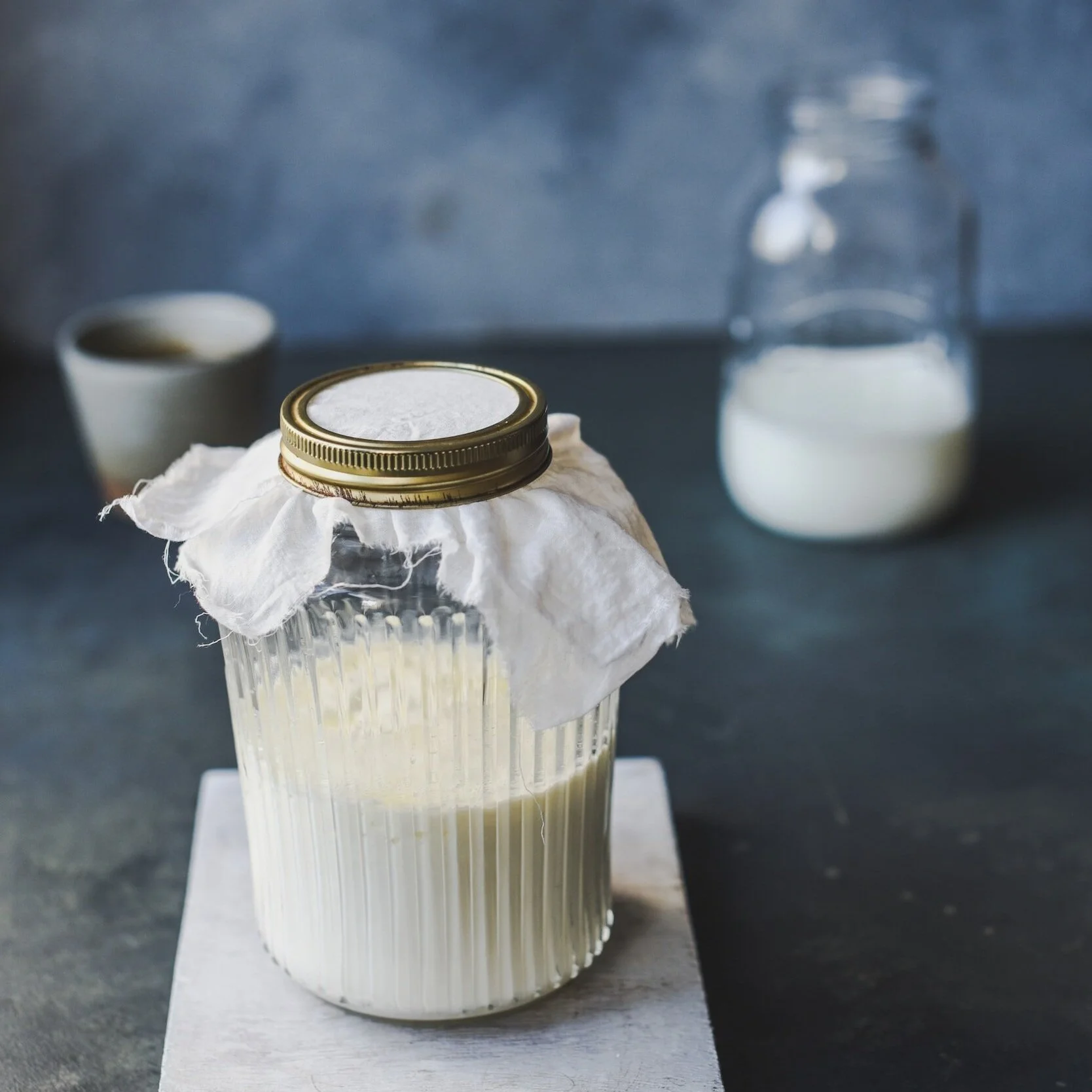Different Probiotic Strains for Dogs
Using Foods For Probiotics
While some brands of yogurt will offer you a bit of probiotic support, don’t be fooled into thinking you’re getting the most bang for your buck, or the most health benefit by adding a dollop of store-bought yogurt to your dog’s meal.
You will find a benefit to rotation types of probiotics from Sauerkraut, Goat’s Milk and Kefir or other fermented veggies. But it still might not be enough to meet the needs of your aging pet, an unwell pet, or a pet who’s gut health you are trying to heal and rebuild.
Supplementing Probiotics
When looking into supplementation consider the variety of strains & the volume of live active cultures.
Probiotic Colony Forming Units
Probiotics will have CFUs count (Colony Forming Units). That’s how many live bacteria cultures are available and active in the probiotic. These CFUs go to work in your gut (or your dog’s) and form colonies that work to support digestion, the immune system, gut flora, and microbiome. Because your dog’s gut has about 13 trillion organisms starting with a probiotic that is low in CFUs will not help you get your dog’s gut health under control.
You will need 4 Billion - 100 billion CFUs for several months to jump start healing. You’ll start slow on dosing of course, but you will need to ramp to those higher levels. It’s in the higher counts that we will get more benefits for health & illness recovery. This may include leaky gut, inflammatory bowel disease, allergies to foods, and recovery from antibiotics (which kills off all bacteria in the gut — even good bacteria).
If your dog is healthy and you’re just in maintenance mode, CFU count of 3-10 billion CFU may be sufficient. If you’re in recovery and rebuilding gut-health mode, look to higher CFU counts.
The Importance of Probiotic Strain Variety
Probiotics will typically have a variety of “strains” of probiotics
*Lactobacillus acidophilus — Helps keep your pet’s entire digestive tract in healthy condition
Bifidobacterium lactis — Helps stimulate immune responses
Lactobacillus plantarum — found in fermented foods and saliva, attacks pathogens and unhealthy bacteria
*Lactobacillus rhamnosus — helps heal leaky gut, helps prevent or reduce intestinal infections. Beneficial to dogs with anxiety and in some studies show may be as effective as prescription anxiety medications like fluoxetine.
Lactobacillus salivarius - helps lower cholesterol, supports asthma, reduces inflammation
Streptococcus thermophilus — protects against pathogens, improves digestion / lactose, mproves immune function
Bifidobacterium brave — promotes immune system, respiratory and skin health, inhibits overgrowth of yeast, protection against infection and inflammation
Bifidobacterium bifidum — Helps promote balanced gut microbiome
Bifidobacterium longum — Helps maintain optimal digestive function and improve immune health. Beneficial to dogs with anxiety.
Other Strains that may be considered include:
*Bifidobacterium animalis — Helps protect the GI tract and promote overall well-being
Lactobacillus acidophilus — produces lactic acid, use for vaginal yeast infections after antibiotics
Lactobacillus casei — Helps promote the growth of gut-friendly bacteria and production of enzyme amylase (to help digest carbohydrates). Helps decrease abdominal discomfort and bloating symptoms. Helps produce enzymes that aid in digestion and nutrient absorption*
Bacillus coagulant — beneficial for IBS/IBD, inflammation in the large intestine & colon, effective against infectious diarrhea, reduces digestive issues
Enterococcus faecium— helps stop infectious diarrhea, rebuilds good bacteria & anti-inflammatory bacteria in the GI tract. Help inhibit e.coli and salmonella
Bacillus clausii SC-109 — elps with acute or chronic diarrhea
Bacillus subtilis HU58 –Helps play a significant role in the balancing of gut bacteria
Saccharomyces boulardii –Helps with symptoms like diarrhea, stomach and bowel discomfort, gas, bloating, and more
Pediococcus acidilactici –Probiotic found in nature that supports ailing guts. Helps balance the intestinal microflora*
Can you identify the strains of probiotics in your supplement? Does it list the CFU count? It’s definitely not always easy. But if you find your current probiotic isn’t helping your dog it might be important to dig deep and look for specific strains. For most dogs, good blended probiotics and rotations of sources make a world of difference.
I recommend Megaspore or Fidospore Probiotics. Both are cat friendly too — and Megaspore is an option fo you. I take it myself. (These are also available in your fullscript account)
Adored Beast also has great probiotics!
See Also Fermented Veggies
These statements are not approved by the FDA and not intended to diagnose, treat or cure any disease.

